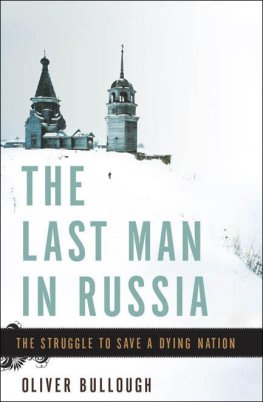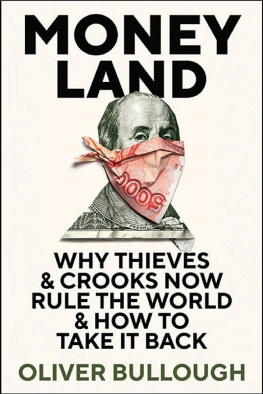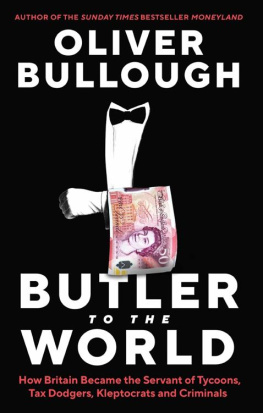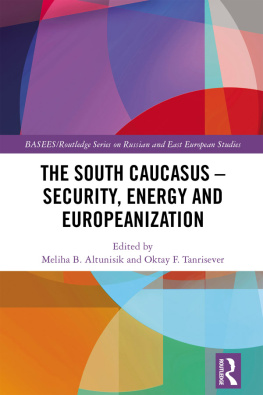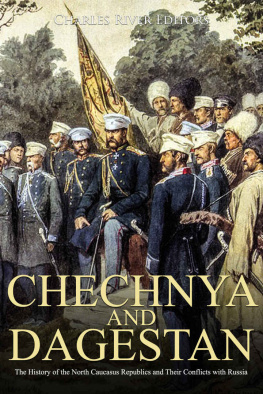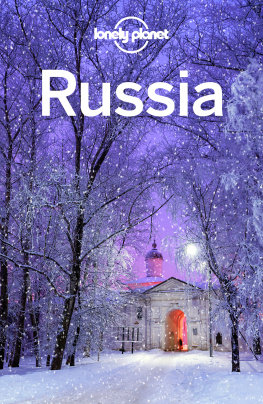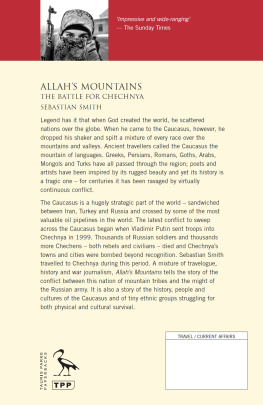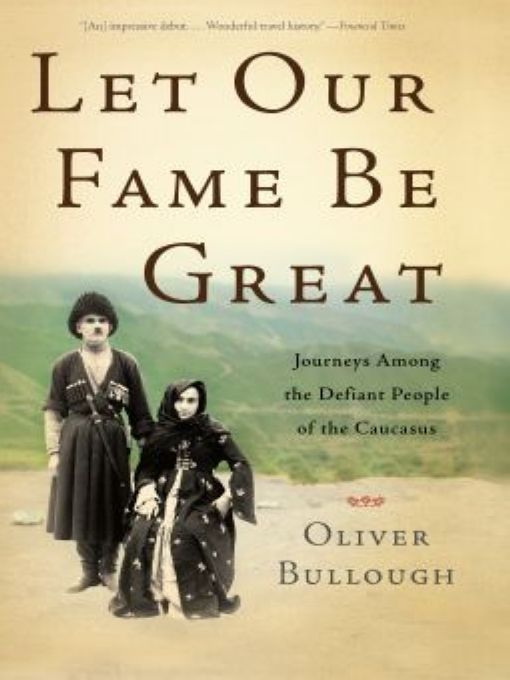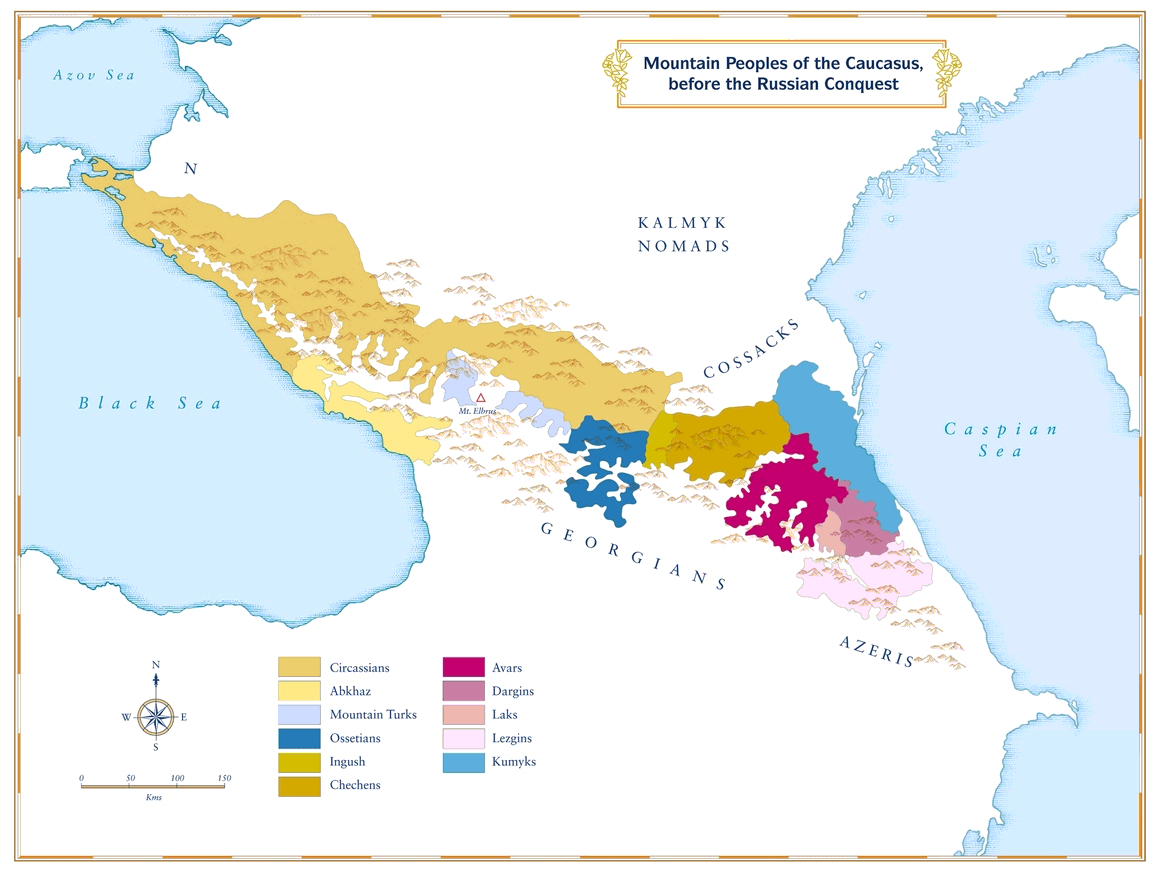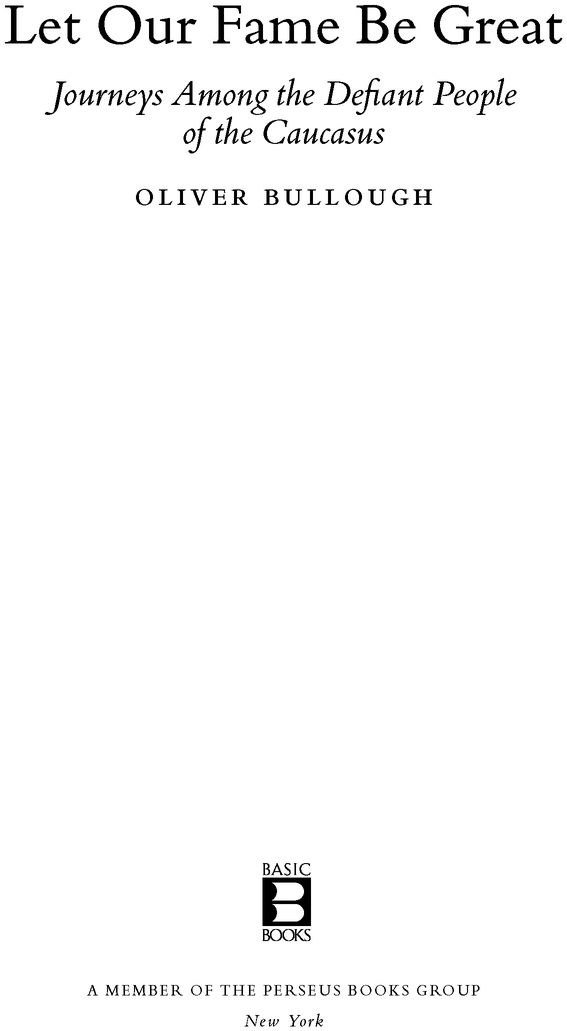Table of Contents
Authors Note
The North Caucasus is an area of great ethnic diversity, with dozens of native languages and dialects, none of which had a written form until the twentieth century.
As such, for centuries it was only described in the languages of foreigners: Russian, Turkish, Arabic, Georgian, Armenian, Persian, Greek and Latin. These have in turn been passed on to us through English, German and French, all of which have their own ways to transliterate the alphabets used by the others.
Thus, names are spelt in a bewildering variety of ways. The capital of Abkhazia, for example, can be Sukhumi, Sukhum, Sokhumi, Sukumi, Sookom, Soukum, and thats before we start on how to spell its name in Abkhaz. Many of these spellings have a political dimension. Anti-communist exiles have often refused to use the Soviet-created Cyrillic system for Caucasus languages, and employ complex Latin-based scripts of their own.
None of the imposed methods look satisfactory. They are full of superscripted letters, apostrophes, dashes and mysterious marks that convey minute but important varieties of pronunciation. To stick with Abkhaz, a student would need to master fifty-eight consonants by turns bilabial, labio-dental, alveolar, alveolar-palatal, palato-alveolar, retroflex, velar, uvular and pharyngal, as one classification has it before he could begin to speak like a native. And Abkhaz is relatively restrained. Neighbouring, but now extinct, Ubykh had eighty consonants.
The Caucasus traveller and historian John F. Baddeley explained in his epic The Russian Conquest of the Caucasus, which was published in 1908, how Dagestan at the opposite end of the mountain chain was even more complex.
The Avar language, like many others in the Caucasus, is extremely difficult of pronunciation to Europeans, in proof of which it may be mentioned that the tl so frequently occurring on the map is the only rendering the Russians have been able to find for four different sounds or clicks; while their k represents no less than six, he wrote.
While researching this book, I puzzled over how I would fit this complexity into the familiar twenty-six letters of our alphabet. A system could presumably be created to harmonize all the different systems into one, but it would be a lifetimes work, and I am a journalist, not a linguist.
My revelation came when visiting the tomb of a Sufi holy man, born in Dagestan, but buried in Turkey. He and his family members were clustered together in an attractive building that doubled as a prayer-hall for pilgrims wishing to visit his grave. His own headstone was written in Arabic script, but three of his descendants had been commemorated in modern Turkeys Latin alphabet. The name he had passed down to them was spelt, on three adjacent graves, in three different ways: Serafuddin; Serafeddin; Serafetdin.
I puzzled for a while over how I could manage when even his family could not agree, then decided simply not to bother. If they did not care, it seems perverse to spend too long worrying about it. As a result, I have not even pretended to use a unified system of spelling, but have tried to create a book that is easy to read, in which names do not baffle the reader with clusters of consonants, strange apostrophes and clumps of ugly vowels.
I come to the Caucasus via the Russian language, so I have used the Russian version for most names, transliterated in the same simple system most British journalists employ. For people in the book who would have written in Arabic (primarily the nineteenth-century leaders of Chechnya and Dagestan), I have used a version of their name closer to Arabic, with the letter j instead of the Russian dzh, for example.
I have also tried to use the form of spelling most likely to be familiar to readers. For example, I have called the capital of Chechnya Grozny, the Russian version, rather than Dzhokhar, as some separatists insist. In such cases, the decision on which name to use is as much political as linguistic, and I mean no recognition or rejection of the locals positions by the choices I have made. I had to call the places something, and came down on the side of familiarity.
I know some readers will be offended by some of the choices I have made, and will feel I have sided with their opponents. I just hope they will take comfort from the fact that their opponents are almost certain to have been offended by something else in the book.
On a separate note, I apologize that throughout I have used the word Caucasus as a rather clunky adjective as well as a noun: as in Caucasus peoples; Caucasus wars; Caucasus cultures; Caucasus languages. This at least is not my fault. I blame the German eighteenth-century racist Christoph Meiners, who gave his anthropologist colleague Johann Friedrich Blumenbach the idea to randomly assign the origin of the white race to the south Caucasus.
To this day, the word Caucasian remains a racial category and is thus not available to describe things and people actually from the Caucasus, which is extremely annoying.
Introduction Let Us Live in Freedom
Russet and gold marshes choke the river Yeya. Its muddy waters merge into the stagnant pools that bubble and ooze through the reeds of its estuary.
Driving along the causeway from Yeisk towards Azov in a Hungarian-made Icarus bus, I failed to notice that Id crossed the river at all. Only when the marshes ended, and the bus had climbed the tiny elevation to the steppes proper, did I realize I had passed the site of a battle that doomed the peoples of the Caucasus mountains to two centuries of carnage.
This muddy land, where Russia stares at Ukraine across the waters of the Azov Sea, is a strange place to look for the gateway to a mountain range, since all around the horizon is a flat line ruled dead-straight against the sky. To the west are the seas turgid, grey-brown waters. To the east are the broad steppes that stretch to the Sea of Japan. And here is an in-between land of mud and reeds that struggle to lift themselves out of the water.
Yet in these marshes, in 1783, Russia opened its path to the south, to the land of the mountains. Here it finally extinguished the power of the steppe nomads that had held it in subjection for so much of its history. The muddy waters swallowed up the last descendants of the terror from the east that according to Russian folklore had held it back, kept it backwards and poor. The nomads had ruled the steppes by raiding and skill for as long as Moscow had ruled Russia, but the Muscovites had finally outgrown them. With the horse lords killed, Russia was free to fulfil its destiny: to march to the warm waters of the Black Sea and beyond.
Above the marshes on the north bank of the river is a tiny village, which still bears the name Yeya Fortress Yei Ukreplenie given to it by the advancing Russian army. To this fortress, in early July 1783, came thousands of the families that made up the Nogai horde, the last free descendants of the armies of Genghis Khan in Europe. The Russian General Alexander Suvorov had summoned them to swear allegiance to their new ruler, Catherine the Great, and the steppes were covered by their tents. Over three days of feasting, he cajoled, he persuaded, he charmed and he threatened, until eventually he had the agreement of the Turkic-speaking nomads. They would transfer their loyalty from the defeated Khan of Crimea to the great empress from the north.


